[Party History Tiantian Study] The Four CPCs of the Party: Propose the issue of proletariat leadership
Author:Police Garden Time:2022.06.18

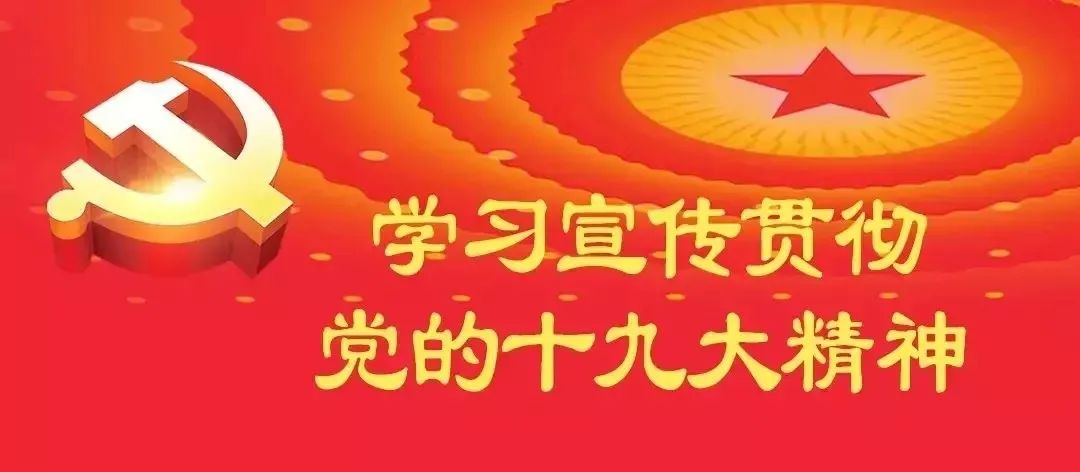
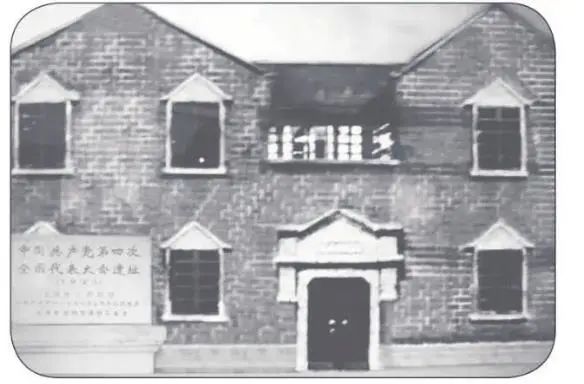
The Fourth National Congress of the Communist Party of China in Shanghai
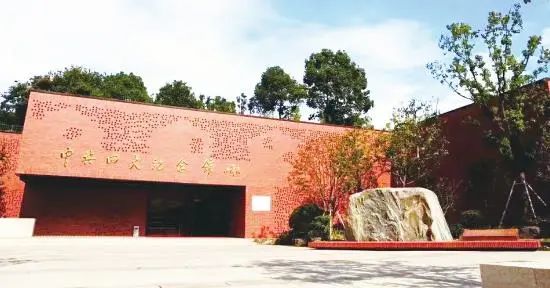
The Fourth National Congress of the Communist Party of China
In order to strengthen the leadership of the increasingly rising revolutionary movement, in January 1925, the four major of the party held in Shanghai. The conference proposed the problem of leadership of the proletariat in the democratic revolution and the issue of the workers and peasants alliances, showing that the party's understanding of the Chinese revolutionary issues has made significant progress.
(one)
In June 1923, after the National Party's Three and January 1924, the first Kuomintang cooperation entered the substantive stage. With the realization of the KMT and the Communist Party, most Communist Party members and young members have joined the Kuomintang. After the joint efforts of the KMT and the Communist Party, the revolutionary situation has developed rapidly. After the Communist Party members joined the Kuomintang, they actively founded and developed the Kuomintang organizations across the country. Earlier, the Kuomintang was nominally a national party, but its organization only existed in a few areas and overseas regions such as Guangdong, Shanghai, Sichuan, and Shandong. The work was only on the narrow upper level, and the lack of the lower -level mass foundation. Communists have carried out hard publicity and organizations under the regions of warlords and established the Kuomintang organization. During this period, the heads of many Kuomintang provincial and cities, such as Li Dazhao of the Beijing Executive Department, Dong Biwu of the Hubei Provincial Party Department, and He Shuheng and Xia Xi of the Hunan Provincial Party Department, were members of the Communist Party.
After the KMT and the Communist Party, Sun Yat -sen also set out a revolutionary armed forces. Although Sun Yat -sen knew the importance of armed in the revolution, an important reason for his repeated failure was that there was no army in his hands. After the cooperation of the KMT and the Communist Party, with the help of the Communist Party of China and the help of the Soviet Union, Sun Yat -sen decided to establish an officer school in Huangpu near Guangzhou. He personally served as the Prime Minister of Military Academy and appointed Chiang Kai -shek as the principal and Liao Zhongkai as the party representative. For the founding of the Huangpu Military Academy, the Communist Party of China gave full support. Not only did they send a number of outstanding party members such as Zhou Enlai to serve in the military academy, but they also selected a large number of party members and revolutionary youths from all over the country to study. In the first phase of Huangpu, there were 50 or sixty members of the Communist Party and the Communist Youth League, accounting for one -tenth of this student.
With the joint efforts of the Communist Party and the Kuomintang, the trend of thought of the National Revolution was from south to north, and it spread to the country at an unprecedented speed. In October 1924, Feng Yuxiang launched a Beijing coup, overthrowing the Beijing government controlled by direct warlord Cao Yan and Wu Peifu, and asked Sun Yat -sen to go north to the communist country. In November, Sun Yat -sen left Guangzhou to the north, promoting the claims of national conferences and abolition of unequal treaties along the way. Shanghai, Zhejiang, Guangdong, Hunan, Hubei and other places have also organized national conferences, and people from all over the country have supported each other.
After the three major of the party, the laborer movement was also recovered and developed. In July 1924, thousands of Chinese workers held political strikes in the Guangzhou Sand Concession, which were concentrated in foreigners, protesting that the British and French concessions authorities restricted Chinese workers in and out of the Shamian Concession. For more than a month, I finally won. This strike became the starting point of a new round of workers' movement.
The peasant movement has also developed greatly. After the party in 1921, party members carried out the peasant movement in front of Xiaoshan, Zhejiang to organize the peasant association. In July 1922, Peng Yue also organized farmers' associations in Haifeng County, Haifeng County, and mobilized farmers to reduce interest and interest. After the cooperation of the KMT and the Communist Party, farmers in counties in Guangdong have established the Farmers Association to carry out the struggle against local tyrants, inferior gentlemen and corrupt officials. The Communist Party proposed that the Kuomintang Central Executive Committee decided to open a peasant movement lecture office in Guangzhou in July 1924. It was chaired by Communist Party members Peng Yue, Ruan Xiaoxian, and Mao Zedong, and trained a number of backbone forces for farmers' movement. In this way, China has an unprecedented revolutionary new weather.
However, with the development of the revolutionary situation, the contradictions within the revolutionary camp have gradually exposed. The Kuomintang rightists began their anti -communist division activities to oppose and destroy the newly formed cooperation situation.
In November 1923, the Kuomintang was a secret of the Kuomintang. Sun Yat -sen secretly wrote to Sun Yat -sen, slandering Borodin and the Communist Party to help Sun Yat -sen reorganize the Kuomintang. Determined, resolutely refuted its fallacy, so that the reorganization work did not stop. However, the Kuomintang right did not stop there. In June 1924, they also proposed to the Kuomintang Central Executive Committee. Joining the Kuomintang's "survival and development of this party, there is major obstacles", and advocated that the Kuomintang "absolutely not suitable for the party in the party", that is, we must break up with the Communists. On August 15th of this year, the second plenary meeting of the first Central Executive Committee of the Kuomintang was held in Guangzhou. At the meeting, the Kuomintang rightists once again "impeached" the Communist Party, and the veterans of the Communist Party and heavy bombs against the cooperation between the Communist Party of China were strongly refuted by the Communists and the Kuomintang left. After this meeting, the Kuomintang's right of anti -communist words and deeds had to converge.
Nevertheless, with the development of the KMT and the Communist Party, the Kuomintang will be further differentiated within the Kuomintang, and the relationship between the KMT and the Communist Party will be more complicated. In order to cope with the complex situation, solve many new problems facing the revolution, and welcome the arrival of the revolutionary climax, the Communist Party of China decided to hold the fourth National Congress.
(two)
On August 31, 1924, the Central Committee of the Communist Party of China sent a letter to the organization, requiring party organizations to express their own opinions on various policies since the party of the party, and discussed at the group meeting to report the results of the results. Individuals have special opinions, and they also require a letter of opinion, and the party committee or team leader will be sent to the Central Bureau. In September of the same year, the Central Committee of the Communist Party of China officially issued a notice of the Fourth National Congress of the Party. It is said that the four major of the party was scheduled to meet in November. The place where the representatives and the special groups of Russia and France should be convened to the conference. The selection representatives arrived in Shanghai before November 14, and the meeting place was in Shanghai. Because the Communist International representatives could not arrive in December, the Central Committee of the Communist Party of China decided to change the conference after December 20. On January 11, 1925, the Fourth National Congress of the Communist Party of China was held in Shanghai. There were 20 representatives attending the meeting, representing 994 party members across the country. The site of the conference was selected in the Huajie, and close to the concession. The detectives of the Huadong and the Concession did not pay much attention. This is a small building in Shikumen. It is a guest hall downstairs. The room on the second floor is arranged into a classroom. There are desks and blackboards. The conference is held in the "classroom". The staircase is equipped with a pull -bell. If there is a police detection, we will notify the upstairs, so that the representatives can pick up the documents and pick up the English textbooks. The room on the third floor is a temporary dormitory representative.
On behalf of the 3rd Central Executive Committee, Chen Duxiu made a work report to the conference. Representatives agree with the analysis of the Central Executive Committee on the Chinese Political Bureau, and to "lead the party's activities in the Kuomintang and the Kuomintang and the National Movement of the Central Executive Committee, so that the party is getting close to actual political life and there is a trend of leading the Chinese national movement." Expressing satisfaction, at the same time, the errors of the Central Executive Committee, such as the lack of technical organizations and the delay of the resolutions of the executive committee's resolution, put forward criticism and suggestions. The Communist International representative Viski attended the first day of the meeting and gave a report on the status of the world communist movement. The conference passed the resolution of this report.
The conference focused on how the party strengthened the leadership of the increasingly rising revolutionary campaign, as well as how to prepare for organizational work, and how to prepare for the masses. The meeting successfully adopted 11 resolutions including the "Declaration of the Fourth National Congress of the Communist Party of China", "The Second Amendment of the Communist Party of China", "A Victory of the Workers' Movement", and "A Prosper on the Farmers Movement".
Finally, according to the decision of the Central Executive Committee in the "The Second Amendment of the Communist Party of China" in the Conference, Chen Duxiu, Li Dazhao, Cai Hesen, Zhang Guozhang, Xiang Ying, Qu Qiubai, Peng Shuzhi, Tan Pingshan, Li Weihan were elected as members of the Central Executive Committee; Pei, Wang Hebo, Luo Zhanglong, Zhang Tailei, and Zhu Jintang are alternate members. Then, the Central Executive Committee held the first meeting to decide that Chen Duxiu, Peng Shuzhi, Zhang Guozhang, Cai Hesen, and Qu Qiubai formed the Central Bureau, and determined the specific division of labor of the central leadership agency: Chen Duxiu served as the General Secretary of the Central Executive Committee and the director of the Central Organization Department. Peng Shuzhi is the director of the Central Propaganda Department of the Central Committee, and Zhang Guozhen is the director of the Central Industry and Rural Ministry. The Central Committee members and alternate members sent them to all places: Li Dazhao was stationed in Beijing, Tan Pingshan was stationed in Guangdong, Li Weihan was stationed in Changsha, Xiang Ying was stationed in Hankou, Deng Pei was stationed in Tangshan, and Zhu Jintang was in Anyuan. He was later supplemented as a member of the Central Bureau and was responsible for the work of the Women's Ministry.
(three)
The most prominent contribution of the party's major is to clearly propose the leadership of the proletariat. In 1921, the party's major program stipulated that the party's goal of struggle was to directly overthrow the bourgeois regime, establish a dictatorship of proletariat, eliminate the private ownership of capitalism, and realize communism. In 1922, the two major of the party's understanding of the nature and revolutionary nature of China has made great progress in understanding. It formulated a thorough anti -imperialist and anti -feudal democratic revolutionary program, and proposed the principle of establishing a joint war between democratic. The status and relationship between the various classes of society in the revolution has not fully figured out. By 1923, the party's three major major, further clarifying that the party's central work at this stage was to combine the revolutionary classes that are committed to anti -imperialist and anti -feudal Kuominta revolution campaigns, formulated a strategy to establish a united front with the Kuomintang, and determine that all Communist Party members joined the Kuomintang. At the same time, maintain the independence of your own organization. But in the three major, many people believe that the leadership of the National Revolution is a bourgeoisie, and the proletariat can only stand in the ownership of the bourgeoisie. It can be seen that before the four major of the party, the party could not give the theoretical correct answers on how to achieve the democratic revolutionary program and how to implement this front.
One of the important reasons to promote the four major partys to clearly ask the issue of leadership is that the Communist International made a more correct instruction on this issue. In May 1923, on the eve of the three major party of the party, the Communist International Executive Committee emphasized in the instructions to the Third Congress of the Communist Party of China, stating that "the party's party should be attributed to the working party of the working class", "consolidate the Communist Party, so that it can make them Become a mass -based proletarian party, gathered the power of the worker class in the union, this is the primary task of the Communists. " In addition, the Communist International also requires the Communist Party of China to pay attention to farmers' issues. It is believed that this is the "central issue of all policies". As a working party party, the Communist Party should strive to achieve the Alliance of Workers and Peasants.
At that time, there was no telecommunications between the Communist Party of China and the Communist International, and China and Russia were far away. Therefore, the instructions were not received when the conference was held. Regarding the leadership of the proletariat in the National Revolution, the "Decision on the National Revolution Movement", which was adopted by the Four of the Party, pointed out: "The proletarian party should know that the proletariat participated in the national movement, and it was not a subsidiary bourgeoisie. Participate in the status and purpose of its own class. In this way, the proletariat does not lose its characteristics in the national movement -class and worldwide. " The efforts of all workers such as farmers, that is, these battles have won, and they also need to have their strong class organizations and their political parties such as the proletariat and farmers in order to ensure the victory of the revolution and resist the new reactionary forces. The revolution of its own class. "
The four major parties of the party analyzed the political attitude of the major classes of Chinese society and believed that the bourgeoisie of the dealer was completely a tool for imperialism. Little businessmen and handicraft owners, especially the knowledge class of uneasy life, hope to have a revolution of national democracy; the non -proletariat of the nomads and handicrafts who go bankrupt is that if they can be guided by the proletariat, they can be under the guidance of the proletariat. It also has a considerable effect. Farmers who account for the majority of China's population are the alliances of the working class. It can be seen from the status quo of all class Chinese society that the more the upper class, the more compromised, the most oppressed and most intensive proletariat is the most revolutionary class. "Therefore, the Chinese national revolutionary movement must participate in the most revolutionary proletariat and achieve the status of leadership in order to win."
So, how to obtain leadership, the resolution emphasizes: "If the national revolutionary movement has a thorough victory, the most revolutionary proletariat stood in the leadership position. At the same time, this leading class must also catch the oppressed social class The power of the common enemy -imperialism and their tools (domestic warlords and landlords) -combat, can avoid being in isolated, which is an important issue. "This is an important issue."
(Four)
The four major parties of the party also discussed the importance of peasant issues in the Chinese revolution. The "Decision on the Farmers Movement" adopted by the conference states that the problem of peasants is the world revolution led by the proletariat, especially in the East's National Revolutionary Movement. Among them, it is an important position. In the economy backward, the peasant class is still an important component of society, accounting for about 80 % of the country's population. Therefore, the peasant problem is particularly important in China, especially in China, especially in the era of the national revolution. "The Chinese Communist Party and the working class must lead the Chinese revolution as for the success, and we must encourage and organize farmers to gradually engage in economic and political struggles as much as possible. Without this effort, we hope that the success of the Chinese revolution and the national movement will achieve Leading status is impossible. "
The four major of the party summarized the lessons and lessons of the KMT and the Communist Party for more than a year, and emphasized that the proletariat should both oppose the tendency of "left" in the national movement and the tendency to oppose the right. The tendency of "left" is to oppose joining the Kuomintang and even participating in the National Revolution, thinking that this is a compromise with the bourgeoisie. However, the error of the right leaning is more dangerous than the error of "left" leaning, and more common: first, since it is thought that since the national movement is the center, it should be fully working on the Kuomintang's work and do not have to do the work of the Communist Party at the same time. The multi -class Kuomintang carried out the national movement, so he had to adopt the policy of the labor and capital regulation association to encourage the struggle between the working class and the bourgeoisie.
The conference emphasized that "our comrades should always be vigilant at the heart of" the danger of right leaning in the party. " The Communist Party should do: adhere to the thorough democratic revolution, maintain its independence; expand the leftist in ideology, organizational, and publicity in ideology, organizational, and the people to fight for the rightist. Step up the compromise tendency to fight against the Kuomintang.
Naturally, this conference also has its own shortcomings. For example, the conference lacks the correct analysis of the national bourgeoisie, and believes that China's national bourgeoisie has not yet formed an independent class. sports". Do not make a correct understanding of the national bourgeoisie's position in the democratic revolution. Although this conference clearly raised the problem of leadership of the proletariat, how to obtain leadership and how to deal with complex questions such as the Kuomintang right, the right to compete for leadership, did not make specific answers. There is no enough attention to the conference. At this time, Peng Shuzhi, who had just returned from the Soviet Union, participated in the drafting of the conference documents, and he believed that "the Chinese workers' class is naturally the leader of the National Revolution." No negative impact on the conference.
- END -
Wuhan's first Hong Kong Conference remittance was appeared, and collectors in this city showed dozens of precious historical materials of unions
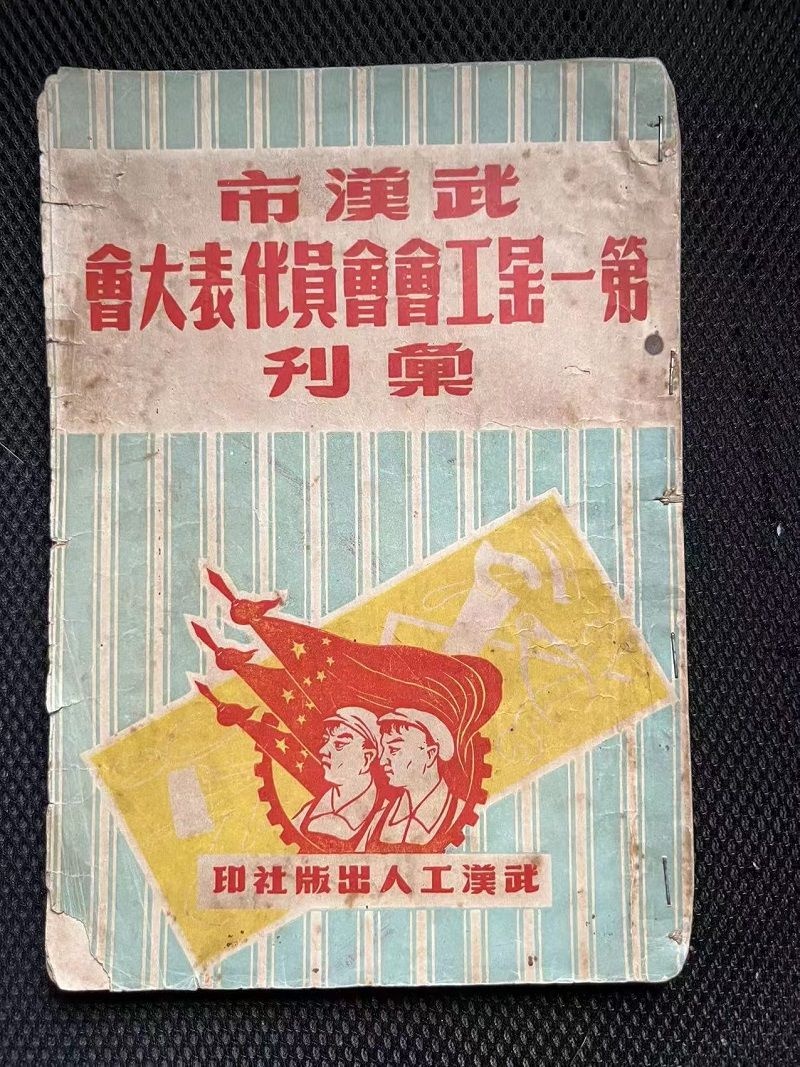
The Yangtze River Daily Da Wuhan Client June 25 (Reporter Li Huizi) Recently, Li W...
Shimao Haisi Museum Carry out the "Cultural and Natural Heritage Day" series of activities
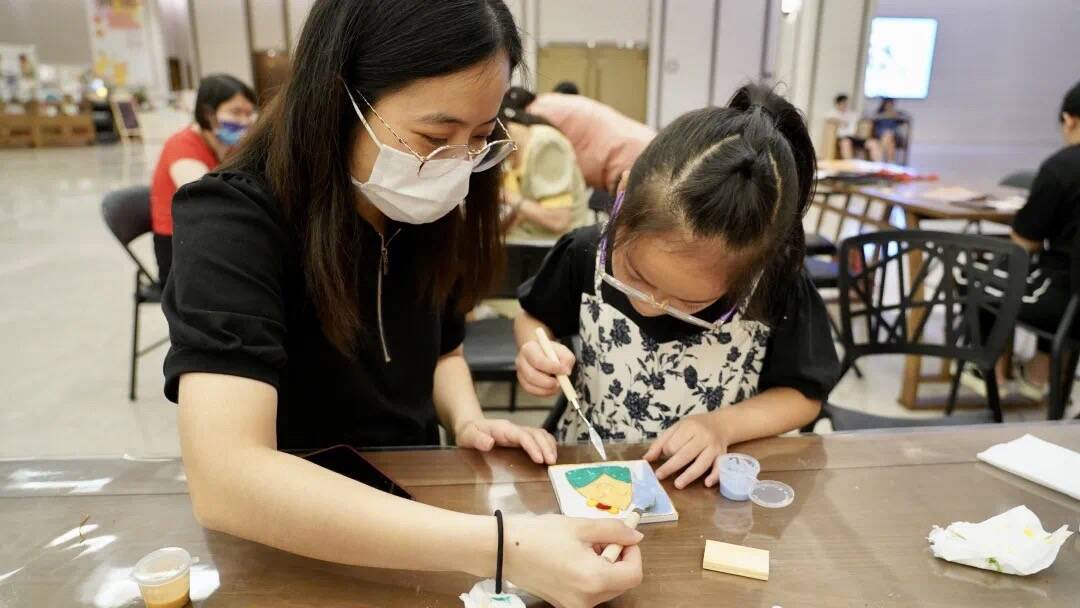
June 11th is the 17th cultural and natural heritage day in my country. Wonderful c...